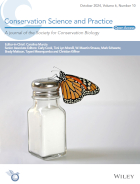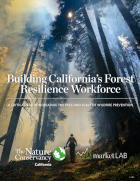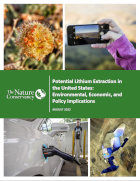Brad Franklin

Applied Economist
Years of service: 2020-2024
MarketLab
[email protected]
Select products
2024 | Terrestrial | Planning | Science | Publications & Reports
An approach to designing efficient implementation of 30×30 terrestrial conservation commitments
Carrie A. Schloss, D. Richard Cameron, Bradley Franklin, Christoph Nolte, Scott A. Morrison
In response to biodiversity declines worldwide, over 190 nations committed to protect 30% of their lands and waters by 2030 . As these jurisdictions move from planning to implementation, we propose a…2023 | Terrestrial | Publications & Reports
Building California’s Forest Resilience Workforce
Wildfires in California, and across the western U.S., are increasing in frequency and severity, threatening both ecosystems and communities. Restoration—a combination of ecological thinning and…2022 | Freshwater | Terrestrial | Science | Publications & Reports
Potential Lithium Extraction in the United States: Environmental, Economic, and Policy Implications
Sophie S. Parker, Bradley Franklin, Brian S. Cohen, Melissa M. Rohde, Michael Clifford, Andrew Williams
Climate change will cause severe financial, social, and environmental upheaval if a massive reduction in carbon emissions is not achieved by 2030. To address this challenge, rechargeable lithium-ion…

